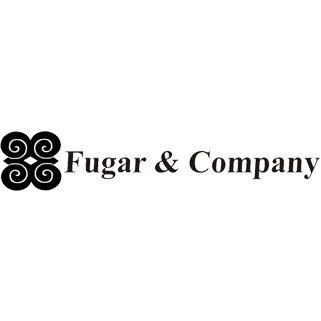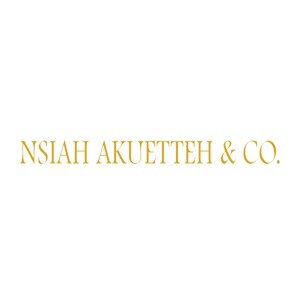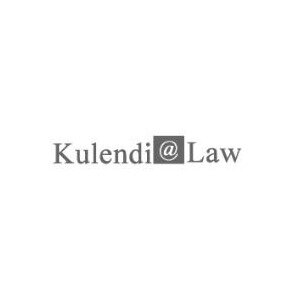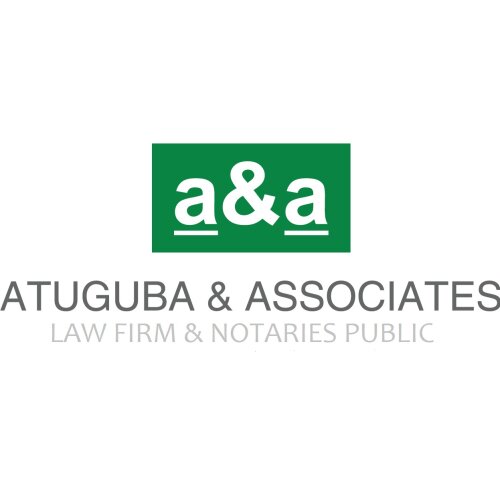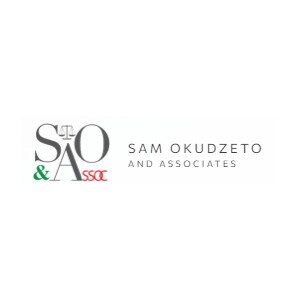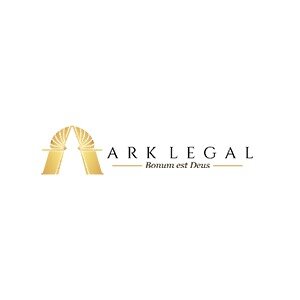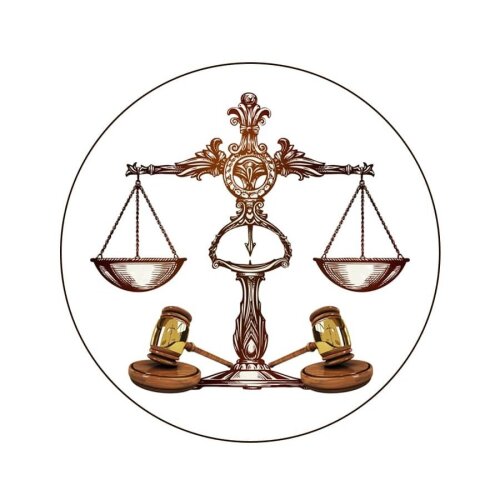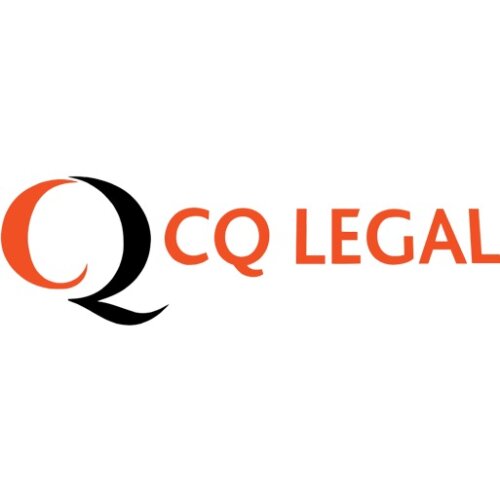Best FDA Law Lawyers in Ghana
Share your needs with us, get contacted by law firms.
Free. Takes 2 min.
Or refine your search by selecting a city:
List of the best lawyers in Ghana
About FDA Law in Ghana
FDA Law in Ghana refers to the legal framework and regulatory guidelines established by the Food and Drugs Authority (FDA) of Ghana. The FDA, established under the Food and Drugs Act, 1992 (PNDCL 305B) and later harmonized under the Public Health Act, 2012 (Act 851), is responsible for regulating the manufacture, importation, exportation, distribution, sale, and advertising of foods, drugs, cosmetics, household chemicals, medical devices, and tobacco products in Ghana. These laws aim to ensure that the products on the Ghanaian market are safe, effective, and of good quality, protecting public health and enhancing consumer confidence.
Why You May Need a Lawyer
Navigating FDA Law in Ghana can be complex, especially for businesses and individuals involved in the food, drug, or cosmetics sectors. Common situations where people may require legal help include:
- Registering a product with the FDA for the first time.
- Dealing with FDA compliance inspections and responding to regulatory notices.
- Handling the suspension or revocation of a product registration or license.
- Addressing product seizure, recall, or destruction due to non-compliance.
- Challenging FDA decisions in hearings or court.
- Advising on labeling and advertising regulations for new products.
- Importing or exporting regulated products and understanding related requirements.
- Defending against allegations of counterfeit, adulterated, or unregistered products.
In these situations, an experienced FDA Law lawyer can help with interpretation of the law, drafting submissions, representing you before the FDA or in court, and ensuring you meet all legal requirements.
Local Laws Overview
Several key pieces of legal regulation govern FDA Law in Ghana:
- Public Health Act, 2012 (Act 851): This is the principal law regulating food, drugs, cosmetics, household chemicals, medical devices, and related products, consolidating previous laws and broadening regulatory authority.
- FDA Guidelines and Regulations: The FDA routinely issues guidelines and practice notes on product registration, labeling, marketing, and safe manufacturing practices for compliance.
- Regulations on Import and Export: Special permitting and compliance requirements must be met when importing or exporting regulated products.
- Enforcement Powers: The FDA has the authority to enter premises, seize products, issue fines, suspend or revoke licenses, and refer cases for criminal prosecution.
- Appeals and Dispute Resolution: Affected parties can appeal certain FDA decisions, either administratively or through the courts.
Frequently Asked Questions
What products does the FDA in Ghana regulate?
The Ghana FDA regulates foods, drugs (including herbal medicines and vaccines), cosmetics, household chemical substances, medical devices, and tobacco products.
Is product registration with the FDA mandatory before sale?
Yes, all regulated products must be registered and approved by the FDA before they can be legally sold, marketed, imported, or distributed in Ghana.
How long does the FDA product registration process take?
The time varies by product type and completeness of documentation. Typically, it can take several weeks to months, depending on the complexity and whether laboratory analysis is required.
Can foreign companies register their products directly with the FDA?
Foreign companies must usually appoint a local agent or representative in Ghana to handle product registration and liaison with the FDA.
What are the penalties for non-compliance with FDA regulations?
Penalties may include fines, seizure and destruction of products, suspension or revocation of licenses, and possible imprisonment for serious offenses.
How are products inspected by the FDA in Ghana?
The FDA conducts routine and random inspections at manufacturing sites, import points, and retail outlets to ensure compliance with safety and quality standards.
What labeling information does the FDA require?
Labels must provide accurate product information, including name, batch number, manufacture and expiry dates, storage conditions, manufacturer details, instructions for use, and warnings if applicable.
Can I appeal an adverse FDA decision?
Yes, you have the right to appeal certain decisions administratively within the FDA or through the appropriate Ghanaian courts.
Does the FDA regulate advertising of products?
Yes, the FDA must approve all adverts for regulated products to ensure claims are not misleading and are substantiated by evidence.
How do I report a complaint about a regulated product?
Complaints or concerns about regulated products can be made directly to the FDA using their official communication channels such as phone, email, or visiting a regional office.
Additional Resources
If you need further information or assistance, consider reaching out to the following bodies and organizations:
- Food and Drugs Authority (FDA) Ghana - National regulatory authority for FDA Law.
- Ministry of Health - Oversight and policy direction on health-related regulation.
- Ghana Standards Authority - Provides standards for product quality and safety.
- Ghana Association of Biomedical Laboratory Scientists - For issues related to laboratory testing and standards.
- Registered local legal practitioners specializing in regulatory compliance.
You may also refer to the official documents and acts mentioned above for a deeper understanding of the law.
Next Steps
If you believe you need legal assistance with FDA Law matters in Ghana, start by gathering all relevant documents and background information about your situation. Next, identify and consult with a lawyer who has experience in regulatory compliance and FDA Law. Your lawyer can guide you through FDA procedures, help with documentation, represent you in hearings or appeals, and provide advice on risk management and compliance. Consider reaching out directly to the Ghana FDA for initial inquiries or clarification on processes, but always involve a legal professional when navigating complex or contentious matters.
Taking these steps early can help you avoid penalties, ensure timely approvals, and protect your business or interests under Ghanaian law.
Lawzana helps you find the best lawyers and law firms in Ghana through a curated and pre-screened list of qualified legal professionals. Our platform offers rankings and detailed profiles of attorneys and law firms, allowing you to compare based on practice areas, including FDA Law, experience, and client feedback.
Each profile includes a description of the firm's areas of practice, client reviews, team members and partners, year of establishment, spoken languages, office locations, contact information, social media presence, and any published articles or resources. Most firms on our platform speak English and are experienced in both local and international legal matters.
Get a quote from top-rated law firms in Ghana — quickly, securely, and without unnecessary hassle.
Disclaimer:
The information provided on this page is for general informational purposes only and does not constitute legal advice. While we strive to ensure the accuracy and relevance of the content, legal information may change over time, and interpretations of the law can vary. You should always consult with a qualified legal professional for advice specific to your situation.
We disclaim all liability for actions taken or not taken based on the content of this page. If you believe any information is incorrect or outdated, please contact us, and we will review and update it where appropriate.
Browse fda law law firms by city in Ghana
Refine your search by selecting a city.



